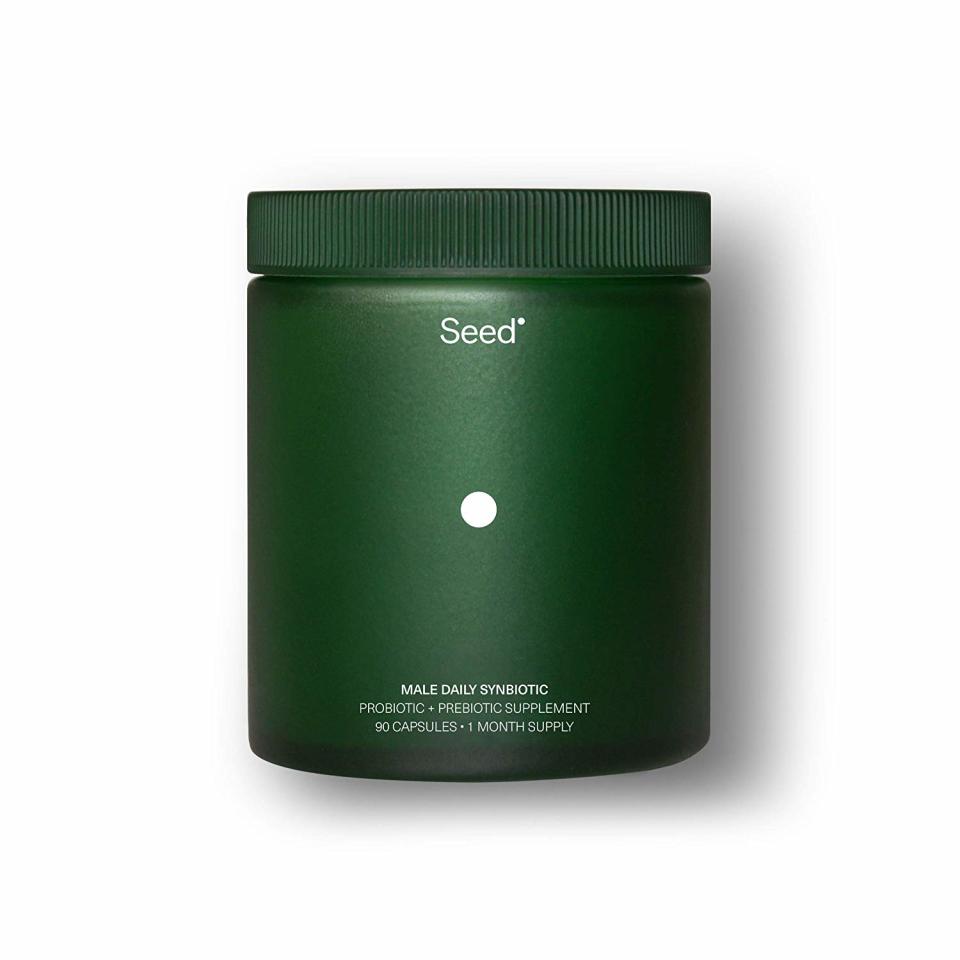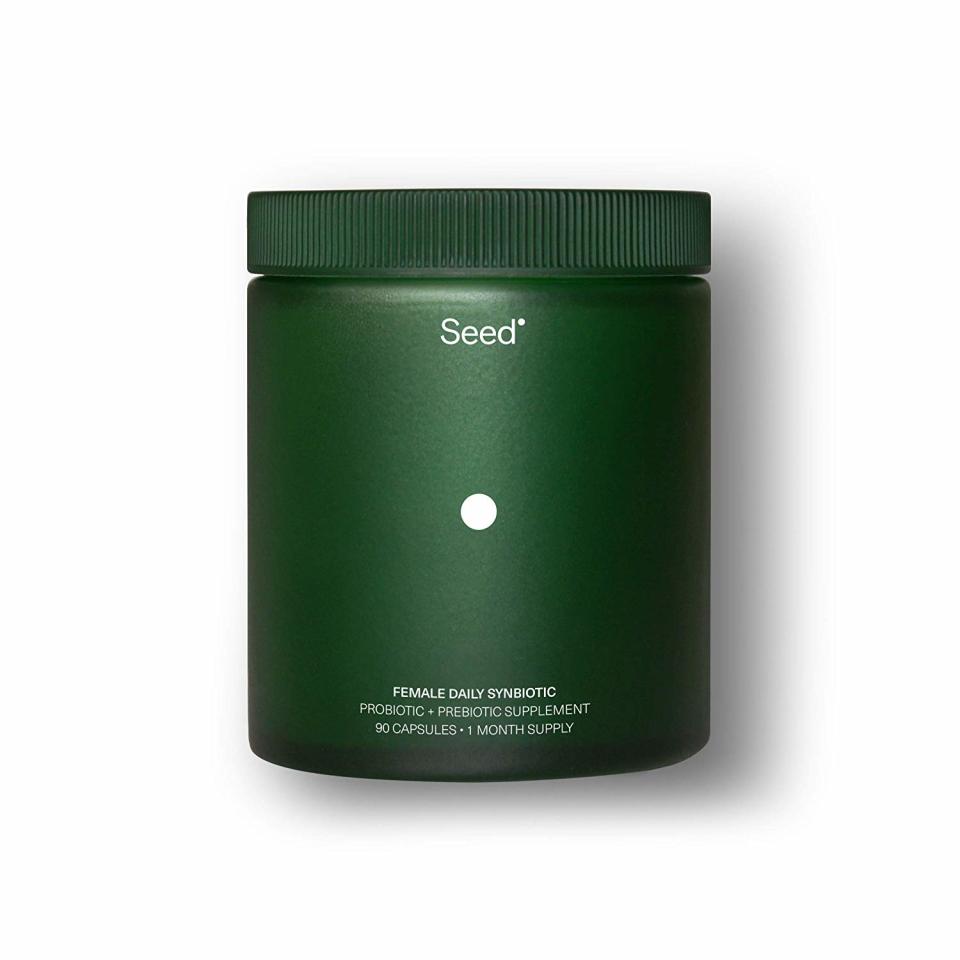'There's really a lot of misleading marketing': Expert advice on navigating the confusing world of probiotics

Topping Forbes’ list of 2019’s food trends, gut health has made its way into the mainstream and things like kombucha, probiotics and fermented foods have surged in popularity of late. This trend may be new, but it’s already changing the landscape of both the food and the wellness industries as more customers are looking to make lifestyle changes that support their microbiome, or the collection of microorganisms that actually makes up 50 per cent of our bodies.
With benefits that range from improved gastrointestinal function to improved energy and increased immunity, many companies are jumping on the probiotics bandwagon and touting everything from water to chocolate that claim to improve gut health.
Curious to find out whether any of these statements hold up, we sat down with Ara Katz, the co-founder and co-CEO of Seed to get the truth about probiotics.

Born of Katz’s personal experience with the microbiome during breastfeeding, Seed is a radically different brand that’s translating the science behind probiotics in a transparent and easy to understand way.
“In this category, there's really a lot of misleading marketing,” Katz admitted. “Obviously the lack of regulation for the term probiotics, unlike in other parts of the world, makes the category incredibly confusing for people because you see the term probiotic on everything from shampoo to tortilla chips.”
In Canada, as well as in the United States, probiotics are categorized as supplements and fall under the category of natural health products (NHPs). This difference in regulation sometimes causes issues when it comes to labeling, especially since there are only general requirements that must be met in order for NHPs to be sold, and there isn’t a single regulating body dedicated to probiotics.

“The official definition of a probiotic, co-authored by our Chief Scientist, Dr. Gregor Reid states that ‘probiotics are live microorganisms which, when administered in adequate amounts, confer health benefits on the host’,” shared Katz. “‘Live’ is the critical word here. Microorganisms must survive the many stages of digestion, past the small intestine, and make it into to the colon, where their work begins.”
Katz compared the inner lining of the intestines to a rainforest, which we want to be lush and diverse. When we fail to take care of our gut flora, that loss of biodiversity can lead to a host of health problems like allergies, weight gain and skin issues.

Introducing probiotics into your diet helps to repopulate the important gut flora and keeps the body healthy, but the problem with many of the supplements on the market is that it’s often difficult to know exactly what you’re getting.
“There’s really no specificity on the labels and you really don’t know what bacteria you’re ingesting,” Katz shared.
This can be especially confusing because many strains of bacteria can have wildly different effects on the human body, even though they’re coming from the same species.
“[For example], one strain of Lactobacillus (plantarum MF1298) exacerbates symptoms of IBS and another strain (Lactobacillus plantarum 299v) alleviates those symptoms,” she noted.
If you’re looking to introduce probiotics into your daily routine, Katz recommends researching the different strains of bacteria that have been clinically tested for the areas of your health that you’re looking to improve. You should also look for research that supports the claims that any brand is making about their probiotics and is backed by human trials.
Katz also shared her top tips for improving your gut health, regardless of whether you’re interested in taking probiotics or not.
DO
Regularly eat fibrous foods, which helps feed the good bacteria in your gut
Aim to eat 30 different fruits and veggies every week to promote diverse gut bacteria
Spend time with pets or outdoors in nature to increase your exposure to different microbes
Stick to natural cleaning products
AVOID
Antibiotics in cases where you’re unsure of a bacterial infection or if you don’t need them
NSAIDs like Advil and Ibuprofin, which can increase gut inflammation
Refined sugars, artificial sweeteners, and alcohol, which can throw of the balance of good gut bacteria
Harsh chemicals that overly sterilize your home
Gluten (if sensitive to it or diagnosed with Celiac’s Disease)
Sticking to a lifestyle that includes a healthy diet and exercise is key to maintaining not only your health, but the health of your microbiome as well.
For more information about probiotics, the microbiome, or bacteria, head to Seed.com and be sure to check out their unique combination of pre and probiotics for men and women.
Seed Male Daily Synbiotic

SHOP IT: Seed, $50/month
Seed Female Daily Synbiotic

SHOP IT: Seed, $50/month
We are committed to finding you the best products at the best prices. At times, Yahoo Canada may receive a share from purchases made via links on this page
Let us know what you think by commenting below and tweeting @YahooStyleCA! Follow us on Twitter and Instagram.


